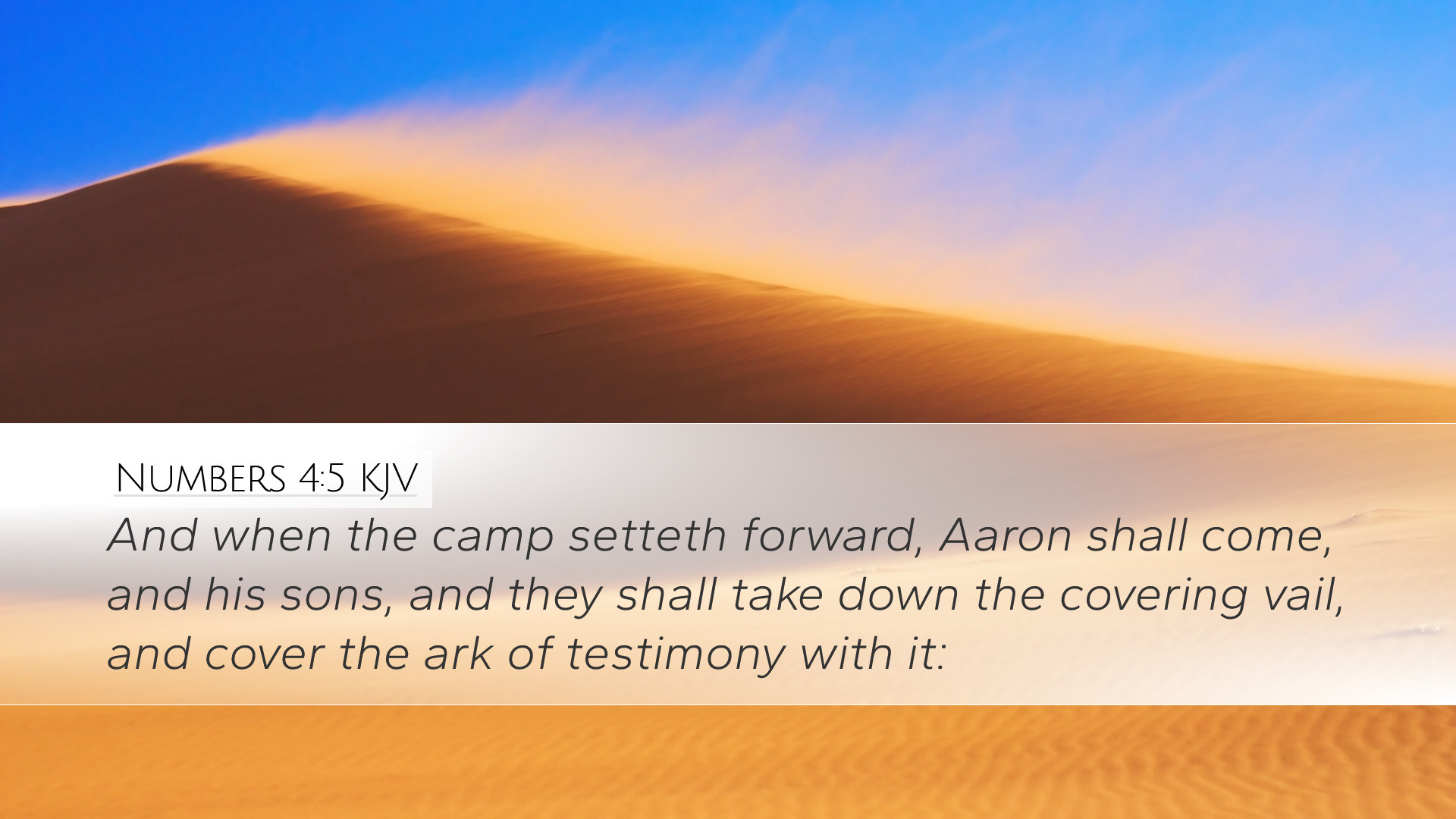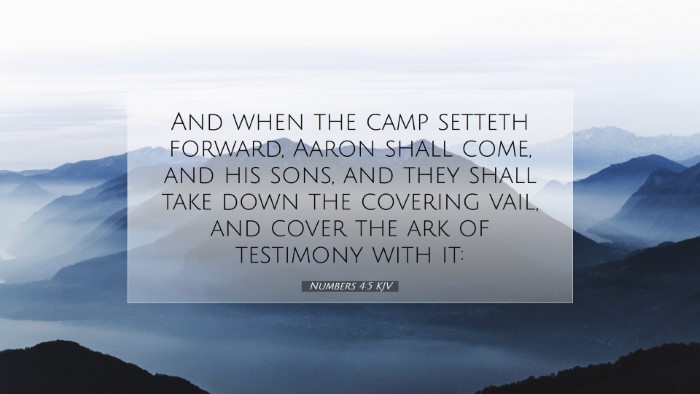Commentary on Numbers 4:5
Verse Text: "And when the camp setteth forward, Aaron shall come, and his sons, and they shall take down the covering veil, and cover the ark of the testimony with it." (Numbers 4:5, KJV)
Introduction
Numbers 4:5 serves as a critical point in the organization of the Israelites during their wilderness journey. The verse specifically outlines the responsibilities of Aaron and his sons in relation to the sacred items associated with the worship of Yahweh. This scripture emphasizes the significance of order and reverence in the service of God.
Contextual Background
In the greater narrative of the Book of Numbers, the Israelites are in their journey from Egypt to the Promised Land. Numbers 4 provides instructions concerning the duties of the Levites, particularly the sons of Kohath, who are entrusted with transporting the sacred objects of the Tabernacle. These directives emphasize the holiness of the items and the importance of proper handling by the priestly line.
Insights from Commentators
Matthew Henry's Commentary
Matthew Henry highlights the meticulous nature of God's instructions in this passage. He points out that the veil represents a significant barrier which protects the holiness of the Ark of the Covenant. The act of Aaron and his sons covering the Ark symbolizes their priestly duty to honor God's presence. Henry stresses that this process is orderly, reflecting the gravity of their role and the importance of maintaining divine reverence.
Albert Barnes' Notes
Albert Barnes provides additional context regarding the Ark of the Covenant. He notes that this item contained the tablets of the law, representing God's covenant with Israel. Barnes suggests that the covering of the Ark with the veil was a protective measure to prevent any potential defilement. He emphasizes the seriousness of approaching God and indicates that only the authorized could handle sacred items. This arrangement signified both access and separation in the context of worship.
Adam Clarke's Commentary
Adam Clarke elaborates on the significance of the veil and the Ark itself. He states that the covering veil served not only as a means of protection but also as a visual reminder of God's holiness. Clarke explains that the positioning and movement of the Ark were integral to Israel's identity as God's chosen people. The Ark represented God's presence amongst them, and the specific instructions underlined their need to maintain a sanctified approach to worship and service.
Theological Implications
The instructions in Numbers 4:5 underscore several key theological themes:
- Holiness of God: This passage emphasizes the sacredness of God's presence and the need for reverence by those who serve Him.
- Order in Worship: The orderly procedure outlined for transporting the Ark illustrates the significance of structure and reverence in communal worship.
- Priestly Mediation: The role of Aaron and his sons demonstrates the importance of the priesthood and their mediatory function between God and the people.
Practical Applications
For pastors, students, and theologians, Numbers 4:5 offers several practical insights:
- Emphasizing Sacredness: When engaging with God’s word and worship, it is essential to remind congregations of God’s holiness and our need for reverent approach.
- Importance of Structure: Churches should seek to establish orderly practices in worship that reflect the seriousness of their engagement with the divine.
- Recognition of Divine Leadership: Understanding the role of spiritual leaders in guiding and protecting the congregation can enhance community spiritual life.
Conclusion
Numbers 4:5 encapsulates valuable lessons about the holiness of God and the importance of order in worship. Commentators such as Matthew Henry, Albert Barnes, and Adam Clarke provide rich insights for understanding the implications of this passage. As the church today engages with such passages, there remains a vital call to recognize God’s holiness, the importance of structure, and the role of spiritual leadership within the community of believers.


